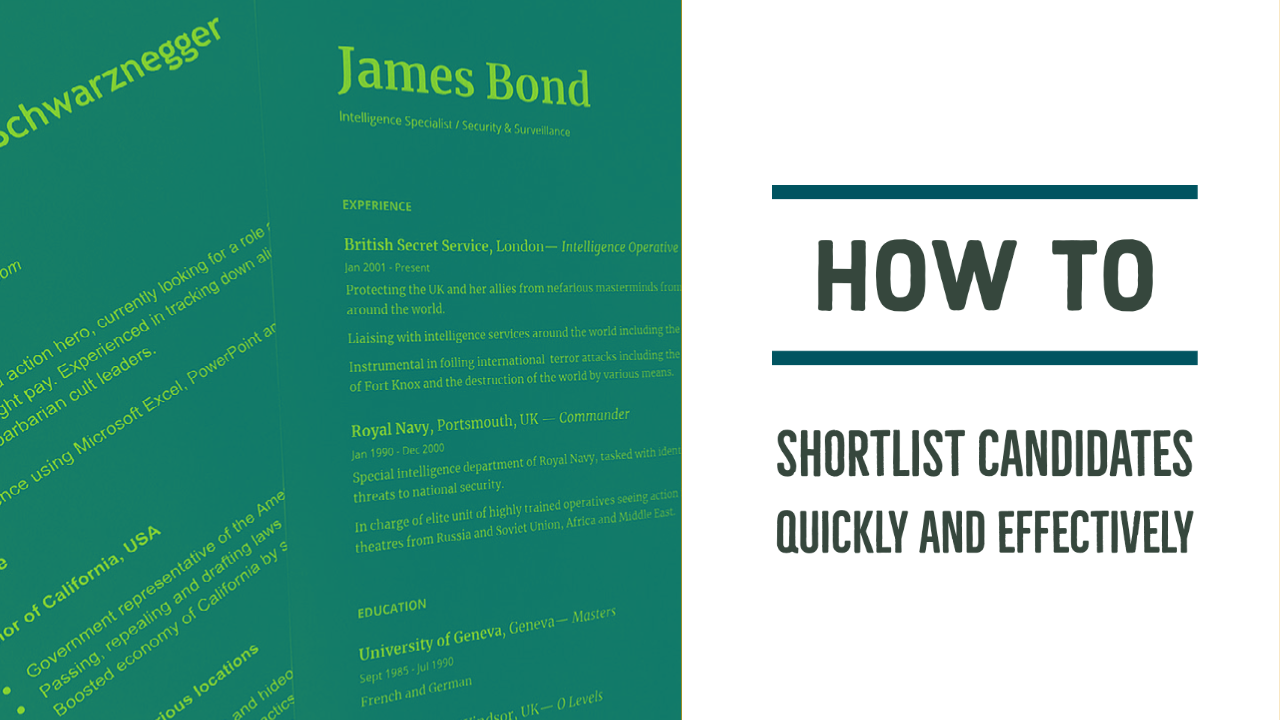As the pandemic continues to slow and the job market finally begins to resurge, many employers are preparing to take on staff in high numbers. Recruiting can be a lengthy process, so it’s important to make it as quick and effective as possible to ensure you’re finding the perfect candidate for the role, without burning too much time.
A single vacancy can attract hundreds of applicants - so, what should you look out for when reviewing a CV and how can you shortlist applicants effectively? Follow our advice below to make the process as smooth as possible.
Define your ideal candidate
Before you begin to assess the applicants, make sure you’ve clearly defined your ideal candidate, with checklists for both desirable and essential criteria. Anything you deem ‘essential’ is likely to be a hard skill - something that the applicant will definitely need in order to do the job, whilst desirable skills could be anything from a particular degree to a specific number of years of experience in a previous role. It’s a great way to easily compare applicants and find those that tick all the right boxes.
Spot red flags
Always screen CVs for spelling and grammar errors - sift out any that include typos and mistakes, or inconsistencies such as different fonts. Things like this suggest the candidate hasn’t bothered to check over their application and could have poor attention to detail - a trait most employers would rather avoid.
Hold preliminary interviews
Interviews can be time-consuming, so to save yourself from conducting full sessions with each shortlisted candidate, invite them for a quick Zoom interview or phone call. This way, you can ask any important questions and assess whether they would be a good fit for your organisation. You can then decide whether it’s worth inviting them for a second interview to find out more.
Look out for ‘one size fits all’ CVs
Check whether applicants have tailored their application to your vacancy - for example, by highlighting keywords used in the job description or sharing a personalised cover letter. These cues could help you to identify earnest candidates that have spent time doing their research, as opposed to someone who is sending out quick-fire CVs to any vacancies.
Look for evidence
Many CVs will list key skills, but it’s important they can back these up with tangible evidence. A good candidate will not only list their skills, but they’ll show you how they’ve successfully put these into practice in a previous role.
For more information on how to screen CVs effectively, take a look at our blog post about how you can spot a great candidate.








